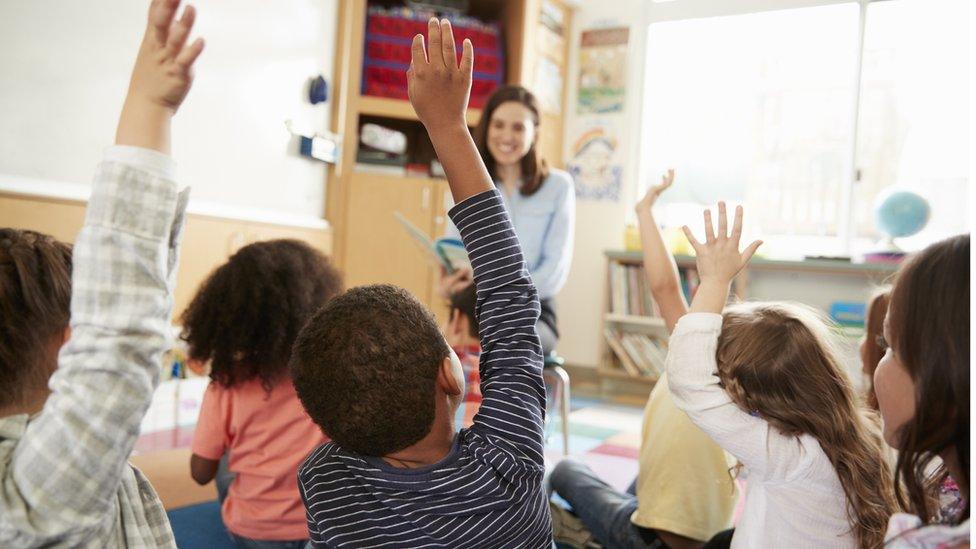Coronavirus: Parents of disabled children plead for more help
- Published
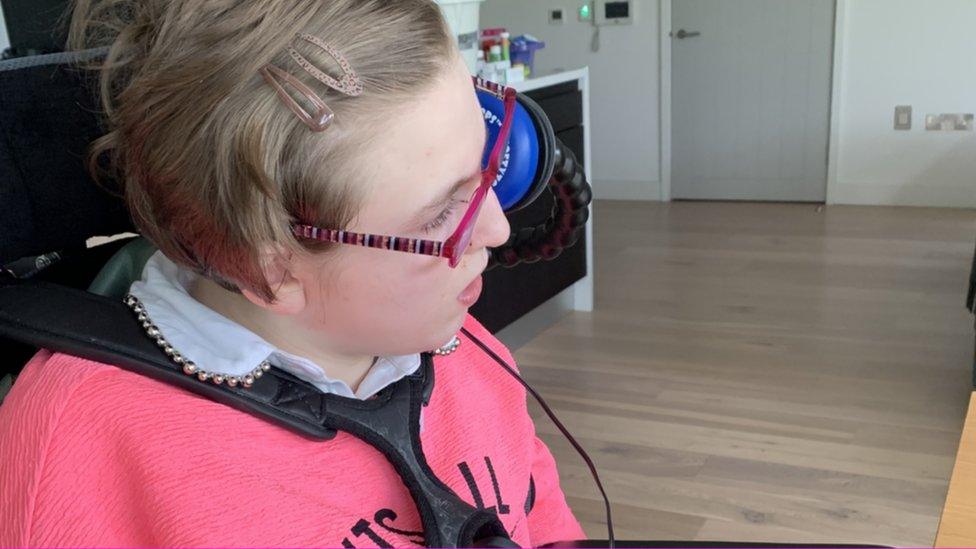
Meabh Bradley, who has cerebral palsy and is non-verbal, enjoys interacting with her friends on the internet
Parents of disabled children in NI have called on the government for better support during the coronavirus crisis.
Limited access to Personal Protective Equipment (PPE), hygiene products and a lack of interaction are some of the biggest concerns for parents.
One charity said these families urgently needed reassurance.
Speaking in the assembly on Thursday, Education Minister Peter Weir said his department was in constant contact with special schools.
There are 39 such schools across Northern Ireland, all of which closed amid coronavirus health and safety concerns last month.
'Inhumane' lack of support
Marian Bradley’s 17-year-old daughter Meabh has cerebral palsy.
Mrs Bradley said the lack of support she had received since the school closed had been "inhumane, unfair, unjust and once again it’s the people who need the most help being left behind".
“Families in our situations are so isolated at the best of times,” the Belfast woman told BBC News NI.
“When your child goes to school, it’s the first time parents start to hear good news and that their child has potential and they’re in an environment which, hopefully, allows them to start fulfilling that potential.
"But that’s now gone."
The charity Children in Northern Ireland said the government had a responsibility to young people with disabilities and their families “to ensure no further structural discrimination takes places during this pandemic”.
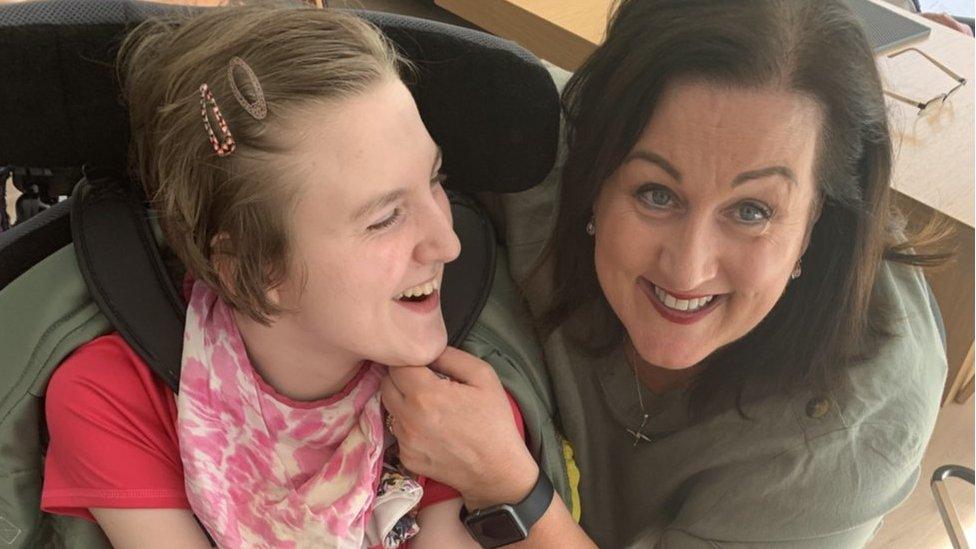
Marian Bradley, pictured here with Meabh, says families in her situation can feel very isolated
Its chief executive, Pauline Leeson, said the charity had experienced an “overwhelming” number of calls from parents of disabled children.
At Stormont on Thursday, Alliance MLA Chris Lyttle asked Education Minister Peter Weir how children with special educational needs (SEN) were being catered for.
Mr Lyttle told BBC News NI that the education and health ministers "must urgently clarify what they are doing to support the delivery of learning, health and social care normally accessed by pupils at special schools at home".
Mr Weir told the assembly: "In the vast bulk of cases most parents - even if there is a level of medical vulnerability - have expressed a desire that they want to look after their child directly at home.
"Many of the schools are not open at present and we're trying to facilitate where there is opening.
"But we've been told by 23 of the special schools that they've had no request by any parent to be open."
Mrs Bradley said she would like to see schools "becoming leaders in all of this”.
“Just because (the pupils) are not able to go to school, doesn’t mean they should be forgotten about,” she said.
'Parents are struggling'
“You don’t want a child that is making so much progress in school to go backwards now and the poor parents, stressed out, worrying about them.
“We had finally got Meabh a social life where she went to school, all her wee groups and swimming, and now none of that is happening.
“We’ve had to explain to her that it is just too dangerous for us to take her out and we have to stay well, but that’s very hard for a young person to understand.”
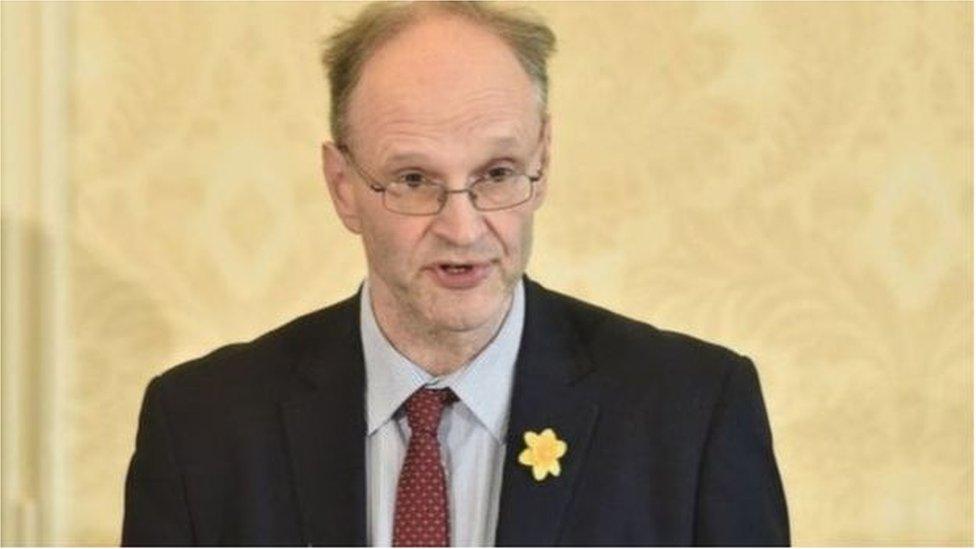
Education Minister Peter Weir has been asked to clarify what support is available for special school pupils
Some parents say that, with limited access to PPE, they are also struggling to secure online shopping slots for food and are worried about going to pharmacies.
Ashling Fitzmaurice, from Newry, County Down, is concerned about her three-year-old daughter, Lily, who has CASK gene mutation.
They are self-isolating, to protect Lily, whose condition affects brain development.
Lily attends Rathore Special School where she receives physiotherapy, speech therapy and occupational therapy.
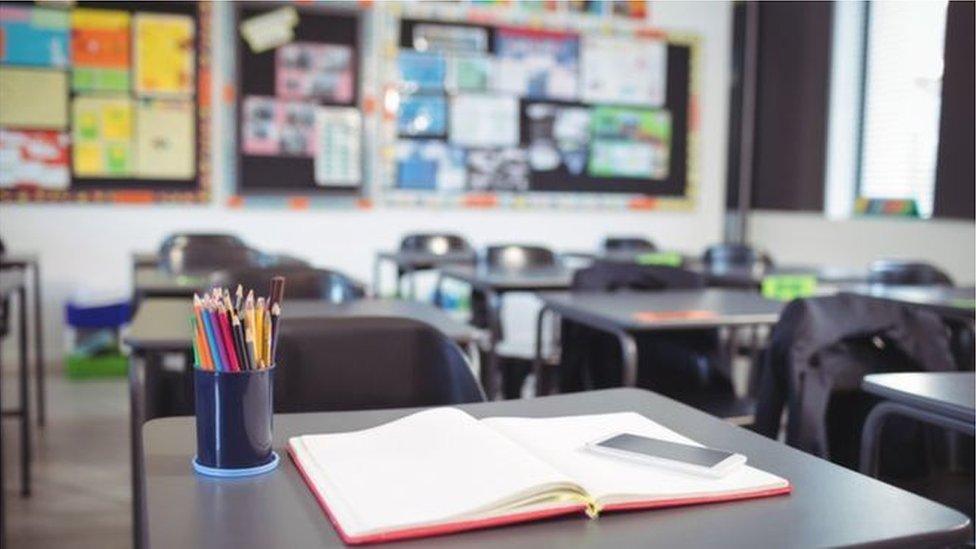
Some parents are worried about their children feeling isolated without school
“She also attended music therapy, equine therapy and play therapy via the autism group which all helped with Lily's development but with the current situation they have been all cancelled,” Ms Fitzmaurice told BBC News NI.
“I'm missing the advice from the other parents in the autism group, too, as they have been a great source of information and support.
“We really won't know the full extent that missing months of therapies will have on Lily as early intervention is key for Lily and other children with SEN."
'Taking steps backwards'
Ms Fitzmaurice added: “Lily is coping well at present - she enjoys her own space - but our worry is that Lily has a lot of anxiety around others.
“It took a long time for her to settle into school and she struggled to go to play centres or anywhere too busy.”
After a few months of tears, Lily was progressing well at pre-school and she was even able to attend assembly a few weeks ago.
“But the longer she is out of school and therapies, the harder it will be for her to adjust back into them again," said her mother.
“We will be taking steps backwards in her ability to socialise.”
A spokesperson for the Department of Education said the minister had decided all schools should open for the children of key workers and vulnerable children where it was safe to do so.
"Schools have put provisions in place to maintain the educational needs of children," they added.
"The Education Authority has moved many of its services to support children with SEN online.
"Parents who have concerns that the needs of their children are not being met should discuss this with the school or their health and social care trust."
- Published15 March 2020
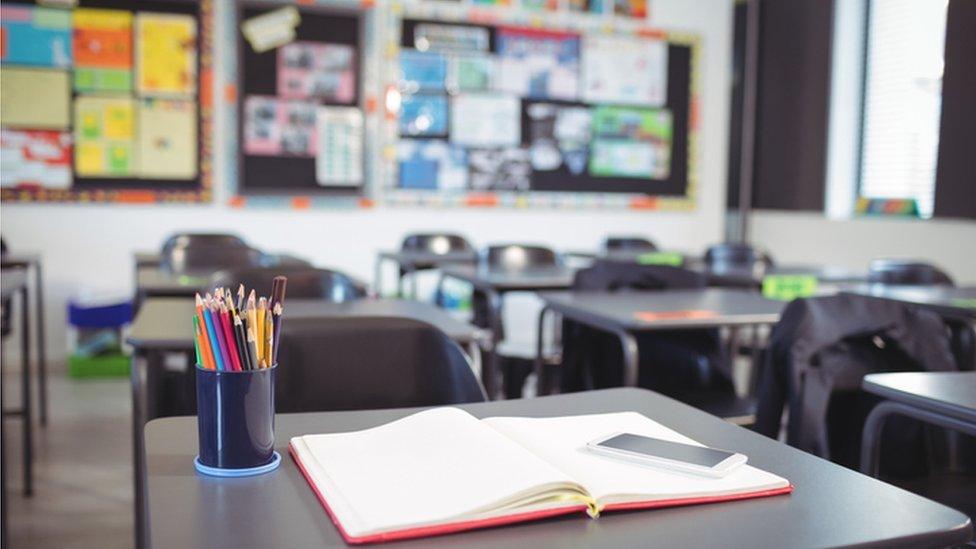
- Published12 March 2020
